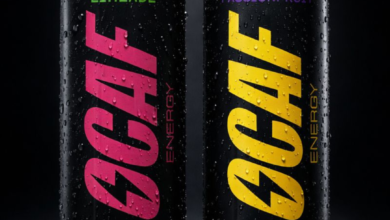IV Fluid Shortages Worsen Across U.S.

The healthcare industry is grappling with a severe shortage of intravenous (IV) fluids. This shortage, primarily triggered by Hurricane Helene’s impact on a major manufacturing facility, is causing widespread disruptions in hospitals across the United States. The situation has forced healthcare providers to implement drastic measures, affecting everything from routine procedures to emergency care.
The primary cause of the current IV fluid shortage can be traced back to Hurricane Helene which inflicted significant damage on Baxter International‘s manufacturing plant in North Cove, North Carolina. This facility is responsible for producing approximately 60% of the nation’s IV fluid supply, making its disruption a critical blow to the healthcare supply chain. The extent of the damage has led to a prolonged production slowdown, with full recovery not expected until late 2024.
Data from Premier finds more than 86 percent of healthcare providers are experiencing shortages of IV fluids in the aftermath of Hurricane Helene, with 88% reporting they are receiving less than half of their requested orders.
Impact on Hospital Operations and Patient Care
The shortage has forced hospitals and nursing staff to make difficult decisions. Many institutions, including prestigious healthcare systems like Mass General Brigham and UVA Health, have postponed or rescheduled non-emergent and elective surgeries. This measure, while necessary to conserve IV fluids for critical cases, has raised concerns among healthcare professionals about the potential long-term health impacts on patients whose procedures are being delayed.
Other mitigation strategies include exploring alternative hydration methods, such as encouraging patients to drink Gatorade or Pedialyte when possible and adjusting medication administration protocols to minimize fluid usage.
Katie Murphy, president of the Massachusetts Nurses Association, said, “There’s some trepidation. This is affecting real people, real lives.”
Nursing staff are at the forefront of managing this crisis, adapting their practices to ensure optimal patient care despite the shortage. Nurses are expressing deep concern over the impact on patient outcomes, particularly for procedures that, while not classified as emergent, are crucial for patients’ long-term health.
“Let’s say you needed a heart valve,” said Murphy. “It isn’t emergent right now, but it’s having a huge effect on your care.”
In response to the shortage, nurses are conserving IV fluids by using smaller volumes of fluids when possible, altering protocols to minimize fluid use, and ensuring patients are well-hydrated before procedures to reduce the need for IV fluids during and after treatments. This has added an extra layer of complexity to nursing care, requiring constant vigilance and adaptability.
The severity of the situation has prompted calls for federal intervention. The American Hospital Association has requested a declaration of a public health emergency and the invocation of the Defense Production Act to boost IV fluid production. These measures, if implemented, could provide much-needed relief to the strained healthcare system.
Looking Ahead: Challenges and Potential Solutions
While Baxter International aims to restore production to 90-100% by the end of 2024, the shortage is expected to persist for several weeks or even months. On October 14, Baxter launched a new webpage with resources that hospitals can use for product management and conservation strategies.
Other manufacturers, such as B. Braun, are attempting to increase their production to help meet the demand.
The IV fluid shortage is an important reminder of the interconnectedness of our healthcare system and the far-reaching impacts of localized disasters. It also shows the critical role of nurses in adapting and innovating in the face of severe and unplanned resource constraints.






